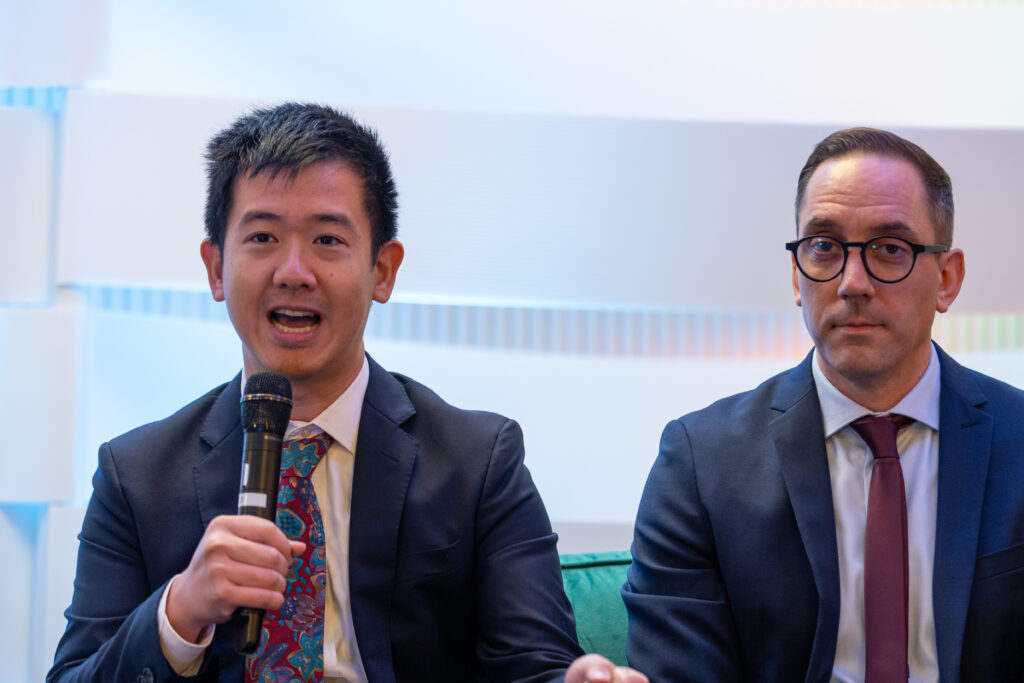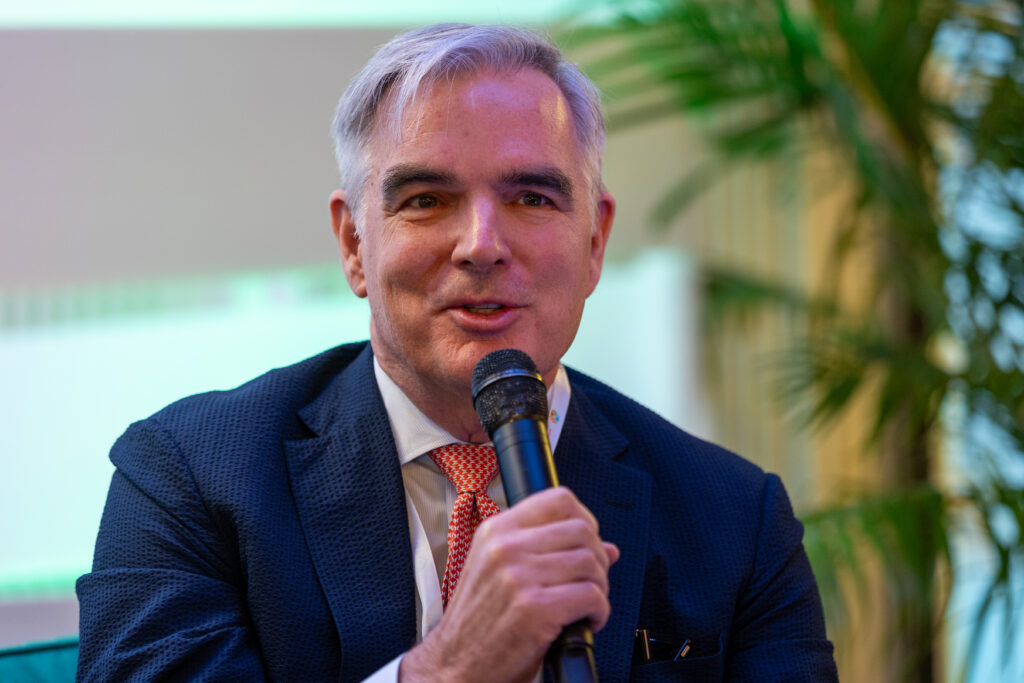During the 2023 National Clean Energy Week Policymakers Symposium, a group of industry leaders convened for a panel discussion on how the United States can leverage its carbon advantage. Landon Derentz of the Atlantic Council’s Global Energy Center moderated the panel discussion, which featured Ross Eisenberg from the American Chemistry Council, Tony Pan from Modern Hydrogen, Chris A. Powers from Chevron, Erik Oswald from ExxonMobil and Jean-Francois Nolet from Enerkem.
The panel addressed the challenges of decarbonization in different sectors and how policy, innovation, and partnership can help the United States remain competitive economically while also reducing global emissions.
“It appears we are at the forefront of an era of clean, industrial policy and in recent years the United States has really gone out of its way to enact a series of energy emissions and infrastructure policies that are widely seen as critical to reaching net zero ambitions,” said Derentz.
The United States has long been a global economic leader, but many feel that they must now choose between prioritizing the economy, emissions reduction or profits. The panelists agreed that a decision isn’t necessary: a solid environmental policy – supported by industry efforts – will result in prosperity in all three areas. “It’s good to have goals, we need to keep these goals, but they are not going to be easy to reach,” said Eisenberg about achieving climate goals.




A critical component of achieving this is American innovation. Companies like Modern Hydrogen and Enerkem are on the frontlines of finding new ways to reduce carbon emissions while ensuring that technologies are beneficial for consumers and industry alike.
Decarbonization, especially in the industrial sector, will require everyone to work together and find a common path forward. As Powers noted, “It’s not only the projects, it’s also the enabling policies. We’ve got to move those enabling policies forward.”
Learn more about this panel and watch it HERE.